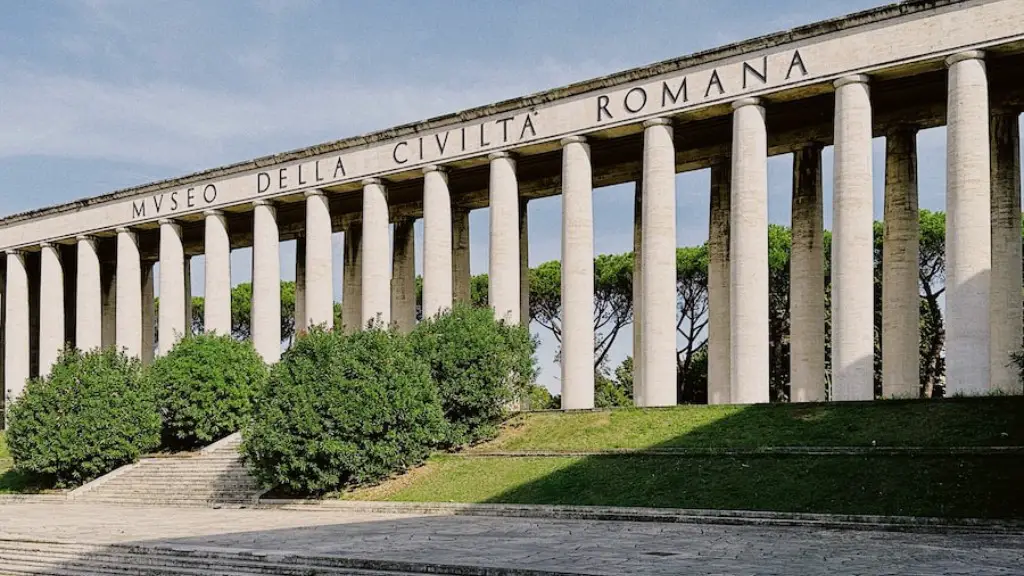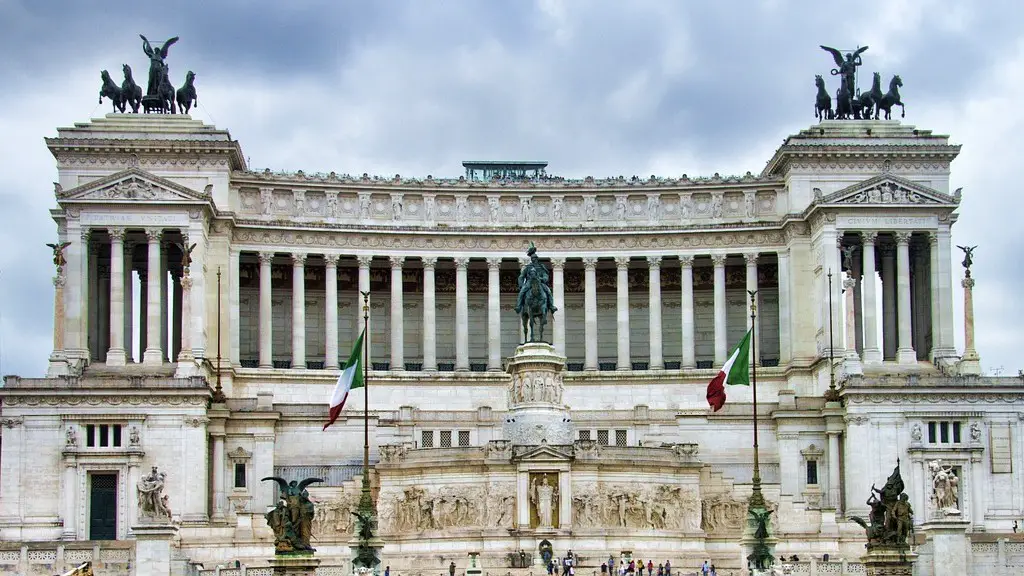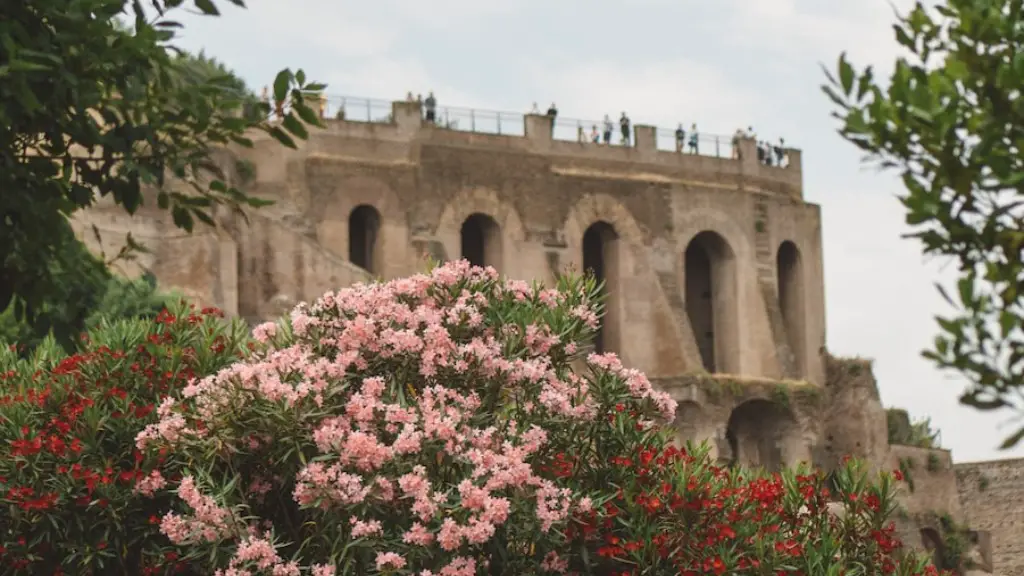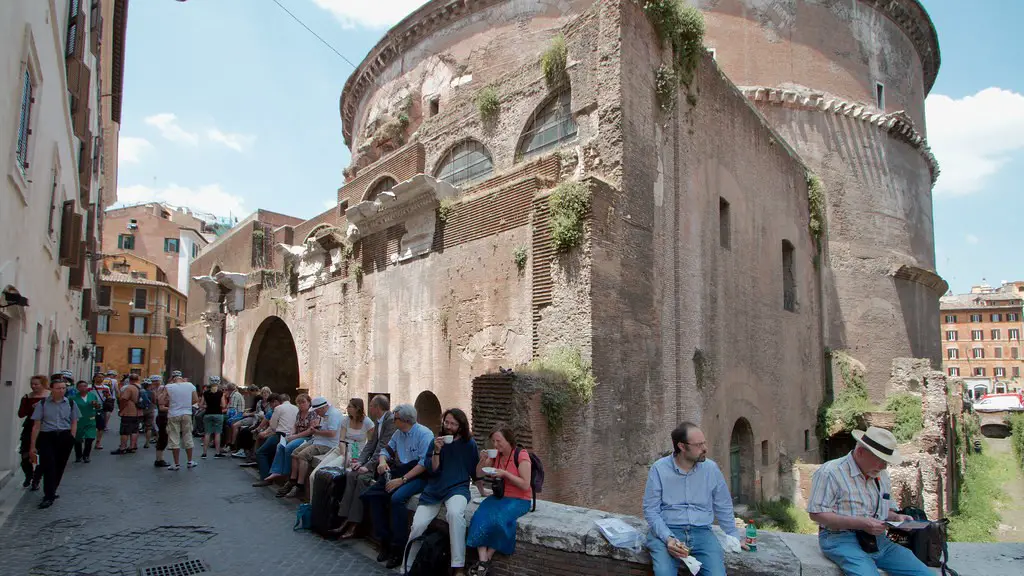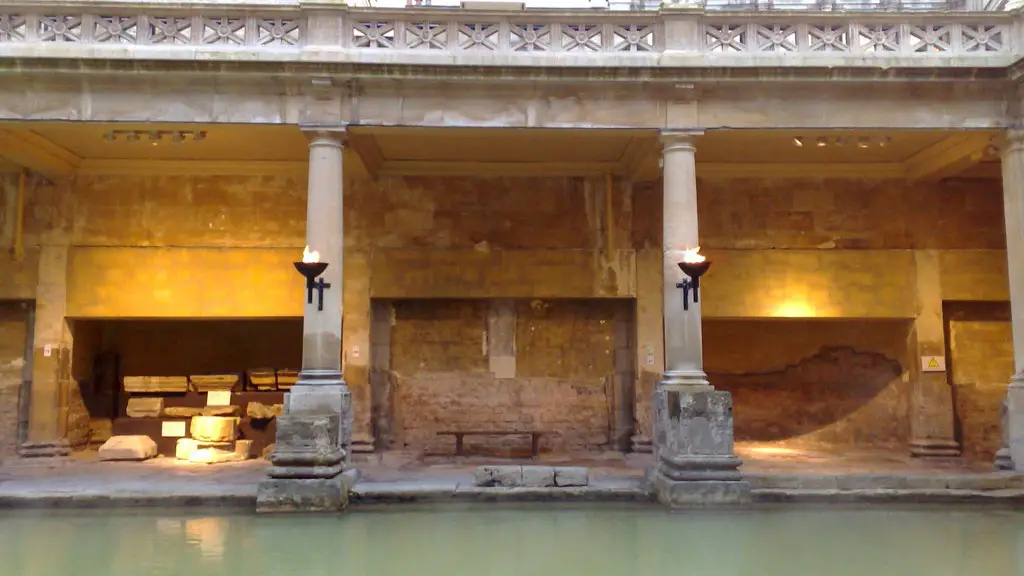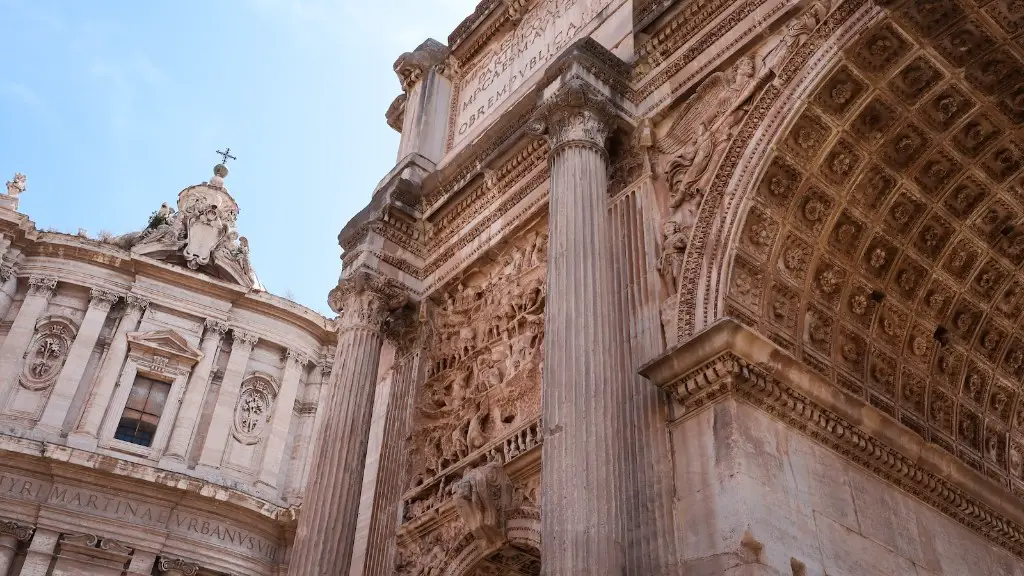The Roman Empire was one of the most powerful civilizations in world history. Spanning from the third century BCE to the fifth century CE, the Roman Republic and later the Roman Empire had a profound influence on the medieval world, particularly the Western world. Empires were built, governments were changed, and religions were adopted, all thanks to the remarkable influence of this great empire.
So, what were ancient Romans like? They were proud and fierce warriors, hardworking artisans and powerful politicians. They were very proud of their wealth and power, as well as their military and cultural achievements.
The Roman army was one of the most feared and respected elements of the ancient world. It was made up of legions, or large groups of highly trained soldiers, who had the power to march on and conquer other nations in a very efficient and often invincible manner. This was largely due to their disciplined approach, use of advanced technology and tactics, and their willingness to lay down their own lives for the greater good of their homeland.
In politics, the Romans had a complex and sophisticated system, with elected representatives and an elected Senate who could often have intense debates about issues, and the citizens were allowed to have a say in the decisions that were made. One of the most famous features of the Roman Republic was their system of courts, which allowed for justice to be served swiftly and fairly.
When it came to religion and culture, the Romans were very diverse and inclusive. They worshipped many gods, as well as believing in a system of beliefs that included astrology and fate. They had a variety of theatre performances, spectacles and chariot races, which were all attended by the wealthy and the poor alike.
In the economic sphere, the Roman Empire was an incredibly successful Empire, achieving wealth and prosperity through a combination of trade, agriculture and taxation, as well as successful conquests of other lands. This allowed them to become a strong world power of their time, as well as to develop infrastructure, such as roads and aqueducts, to transport goods and people throughout their territory.
Architecture
The Romans were also incredibly talented architects who constructed some of the most iconic landmarks in the world. The Colosseum, Pantheon, and Trajan’s Forum are just some of the famous monuments still standing today, and which were constructed during the Roman Empire. These structures were built with the intention of celebrating the glory of Rome, as well as inspiring awe in those who saw them.
Roman architecture was characterised by attention to detail and functionality, as well as an appreciation for aesthetics. This was evident in the development of specific architectural styles, such as the Corinthian column and the Greek Doric order, which were later adopted throughout the empire. These styles can still be seen in cities around the world today, highlighting the lasting influence of ancient Roman architecture.
Education
Much like the rest of the ancient world, education was provided mainly by families and tutors, however, the Romans did have public schools, and teaching posts were filled by professional teachers. Subjects such as grammar, rhetoric, and philosophy were taught, and the Romans also had a system of higher education which introduced people to the wider world of academia, primarily in the fields of law, medicine and engineering.
Education was very important to the Romans and they had a high regard for intellectual achievement. This was something that was enforced in their society and the Roman Empire is often credited with creating the foundations for modern educational systems, which are still in place in many countries today.
Society
The social structure of the Roman Empire was complex, with the upper classes being afforded greater opportunities and privileges than those of the lower classes. However, despite the differences, there was still a certain level of equality between members of the same class.
Women were not considered equal to men, but they had more rights than in other civilizations at the time. Women could own property, work in a professional capacity, and participate in public events. They were also well respected by the society, and their position was more equal than in many other cultures of the time.
Religion
The Romans were very religious, and the Worship of gods and goddesses was integral to their lives. Religion was very closely intertwined with the state, and it was believed that the great achievements of the Romans were due to the favor of their gods. Religion was used as a way to bring peace between people and different classes, and it was seen as an essential part of everyday life.
The Romans primarily worshipped gods and goddesses from Greek mythology, but they also had their own religious beliefs. The worship of gods and goddesses continued throughout the empire, as did the traditions of sacrificing to the gods and goddesses. This was a way to please the gods, and to honor their power and strength.
Over time, the Roman religion became more and more inclusive and tolerant of different religions. This is demonstrated by their adoption of Christianity, which eventually became the official religion of the Roman Empire.
Language and Literature
Latin was the main language spoken in the Roman Empire, however, local dialects were also used. This language was used as the language of literature, law and philosophy. The Latin language is still used today in certain areas, particularly in the Catholic church. As well as spoken and written language, Roman art and literature had a strong influence on the Western world. The writings of Virgil, Cicero and Horace are considered to be some of the greatest works of literature in history, and were held in high esteem by the Roman people.
Latin was also a language of business and commerce, as all official documents and contracts were written in it. This allowed people to understand the law and their rights, and it was also used in trading. This importance of the Latin language led to it being studied and preserved throughout the ages, and it is still studied today.
Economy
The Roman economy was based on a mixture of trade and agriculture. Much of the land was owned by large estates and worked by slaves, which provided a steady income. Trade was also an important part of the economy, with the empire trading goods and resources with different parts of the world. This was an important way to generate wealth and bring prosperity to the citizens.
The Roman Empire also had a strong currency. The Denarius was the main coin of the time, and was widely accepted across the empire. It also allowed for trade with countries outside of the empire, and had a significant impact on the economy of the time. Taxation was an important source of income and was used to fund the government and military.
The Roman economy was a powerful force during the empire, and its influence still resonates today. From trade, taxation and currency to the large estates and agricultural practices, the Romans provided the framework for a successful economy and still serve as an example for today’s societies.
Military
The Roman military was a defining feature of the civilization, and its soldiers were held in high regard by the Roman people. It was made up of legions and separately commanded auxiliary units, and was highly organised and disciplined, allowing it to be one of the most powerful forces in the world.
The tactics used by the Roman army were very effective, and they often used siege tactics and siege weapons to weaken the enemy before attacking. The Roman army also had access to a variety of weapons, such as javelins, spears, swords, and shields. Despite their military might, the Roman army was not invincible, and was eventually defeated by the Barbarians.
The Roman army has become an iconic part of the civilization, and its soldiers are still remembered and respected today. This is partly due to their courage and skill on the field, but also because of their dedication to their homeland and their willingness to lay down their lives for the greater good of Rome.
